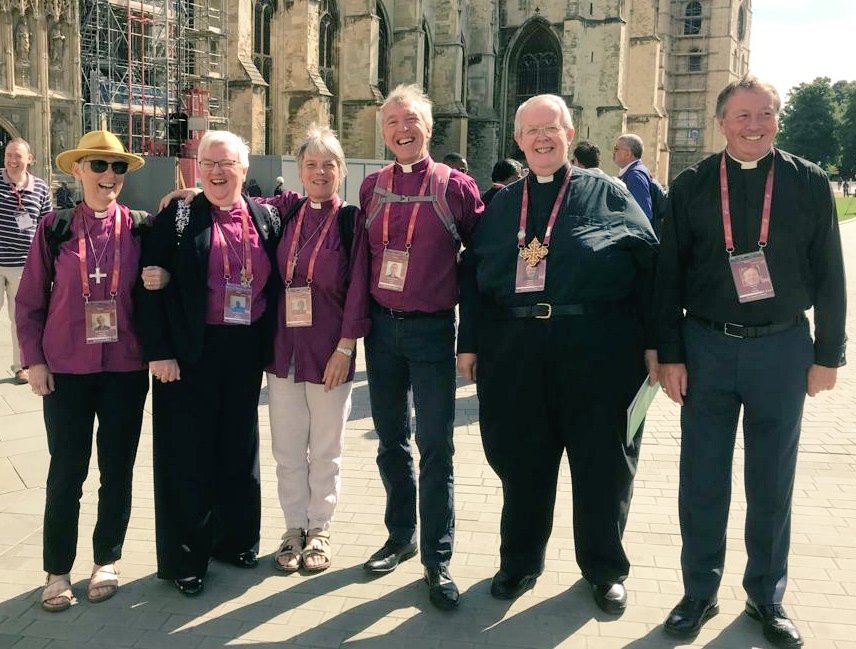Reflections from Lambeth Conference 2022
Lambeth Conference has had more twists and turns than your average soap opera. Who published the Lambeth Calls on Human Dignity? Why did bishops vote against mission? are just some of the issues dominating the headlines. There has been hurt - plenty of hurt - but one thing has remained clear - the Church in Wales bench of Bishops continue to affirm their love and support for our LGBT+ sisters and brothers.
Yet behind the headlines are stories of friendship, hospitality and a love of Christ. So what's it really like behind the scenes are Lambeth Conference 2022? Read on as Bishop June shares her reflections.
Everyone agreed that it started badly.
Put 650 bishops plus a lot of their spouses, a goodly proportion of whom speak no English, on a hot University campus and there’s bound to be a degree of disorientation. It was made worse by long distances to meals, slow queues when you got there, and in some cases, food running out, meaning that hungry and grumpy bishops had to be bussed between venues. Not a recipe for happy campers!
The 15th Lambeth Conference, one of the ‘instruments’ which bind the worldwide Anglican Church together, ends this weekend in Canterbury. Getting to the far side of it with the Anglican Communion still intact must have been a primary goal for the Archbishop of Canterbury (another ‘instrument’ of unity). In 1998 the Lambeth Conference passed a resolution (1:10) about same sex relationships which was contentious then as it is now. In 2008 a substantial number of the Provinces chose not to accept the invitation to Canterbury, instead going to an alternative gathering in Jerusalem. As we gathered in 2022 we saw a repeat of that separation as the bishops of Nigeria, Uganda and Rwanda declined to be with us.
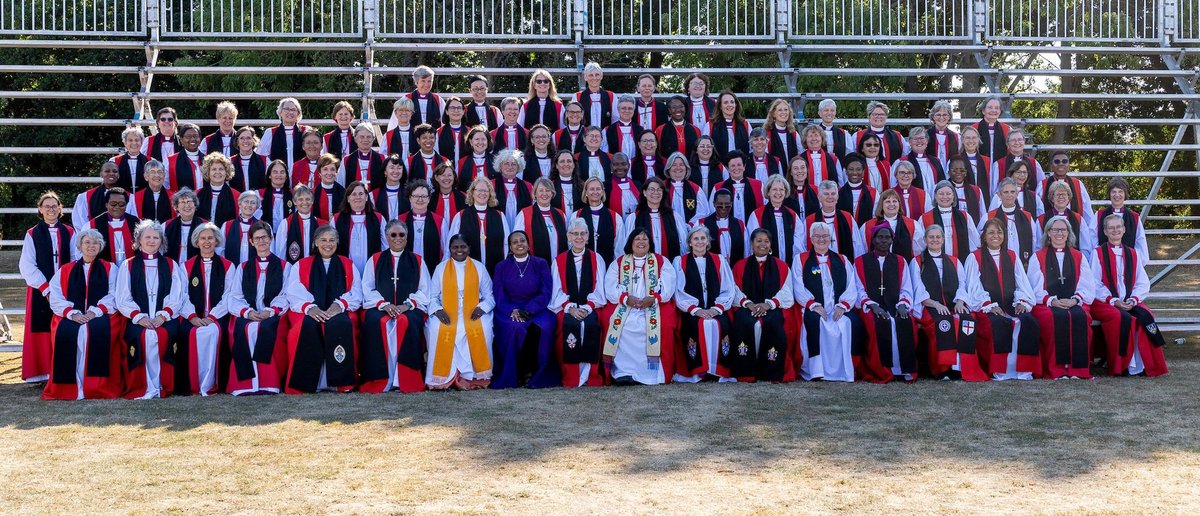
However, we also knew that this would be the first Lambeth Conference with a substantial number of women bishops, 97 in all, including Bishop Elizabeth the first woman bishop in South Sudan, Bishop Maria Grace the first in Nippon Sei Ko Kei, the Anglican Church of Japan, and Bishop Marinez the first to hold that office in Brazil, as Bishop of the Amazon. It was also the first meeting in which partnered gay bishops would be there in number, including our own Bishop Cherry.
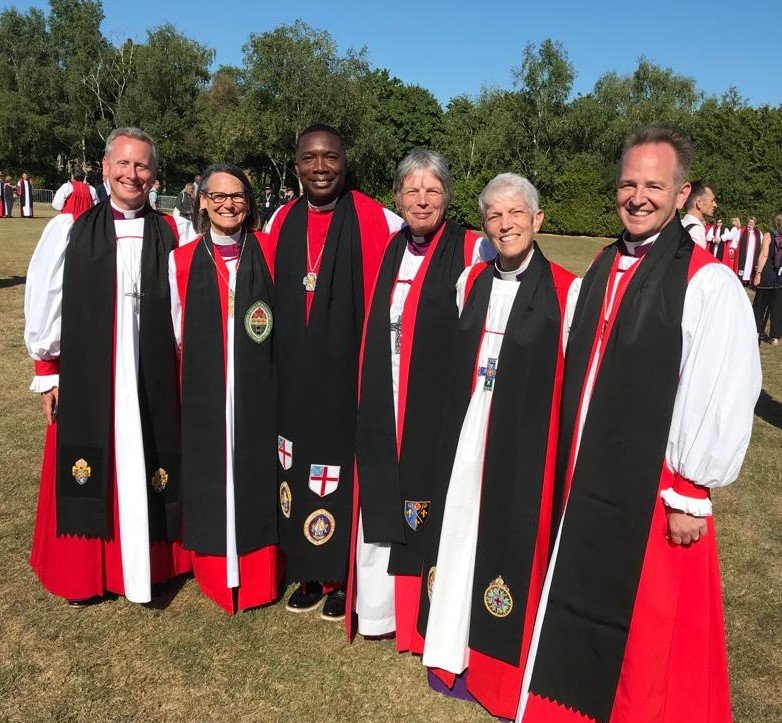
Hardly surprising then that alongside the anticipation there was uncertainty about what to expect. That uncertainty turned to a degree of confusion when the texts of the eight ‘Lambeth Calls’ -declarations and affirmations on key topics - appeared less than a week before we arrived. Some, including the one on ‘Human Dignity’ and its references to gender and sexuality, had been amended since the drafting groups had finished their work. No-one was owning up to being responsible for the final editing, but conspiracy theories weren’t hard to find.
Yet the first conversations focused not on the texts but on the processes we were being asked to adopt to express our views, or to work towards a common mind. There was much reaction to the news that we were to be given an electronic device with which to ‘vote’ but where it was impossible to vote ‘no’. The possibility of ‘no’ was quickly added to the buttons, but the first attempt at voting ended in an amusing but unfortunate outcome.
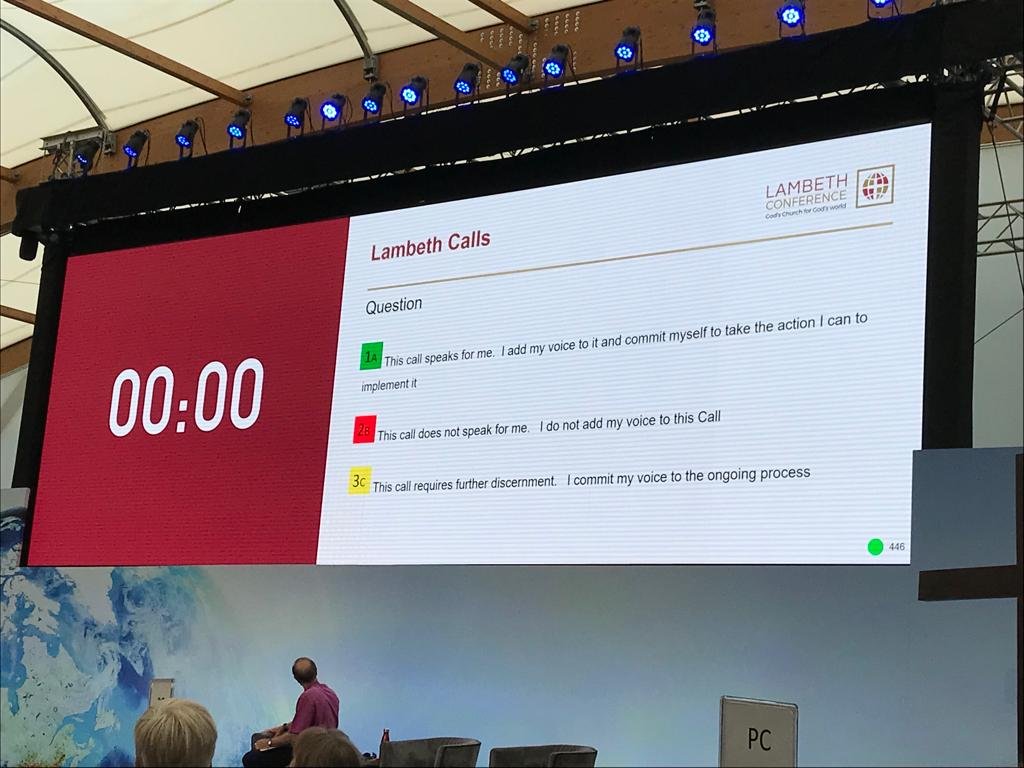
The first ‘Lambeth Call’ was on mission and evangelism with a stirring address by the Archbishop of York. It certainly felt as if the room shared his passion for being a Church committed to mission, and its purpose of making disciples. When we were asked to use our devices to express our views there were a substantial number of objectors and abstainers – not to mission and evangelism – but to the binary process of voting ‘yes’ or ‘no’ on complex subjects. By the following day the media could report that about a third of Anglican bishops had not supported the call to mission!
It is easy to miss the immensely powerful things which have been happening and which unite us
We then headed into a ‘Lambeth Call’ on Safeguarding and no-one was willing to risk the same outcome so the devices were ditched and the Archbishop of Canterbury tried an alternative method of gaining episcopal support. By the time we got to the ‘Calls’ on Anglican Identity, Reconciliation and Human Identity we had gathered to ourselves five different processes for testing the not always common mind of the Communion.
In all of this it is easy to miss the immensely powerful things which have been happening and which unite us, and they have been visibly a part of the Conference even if they don’t find their way into formal sessions or wider reporting.
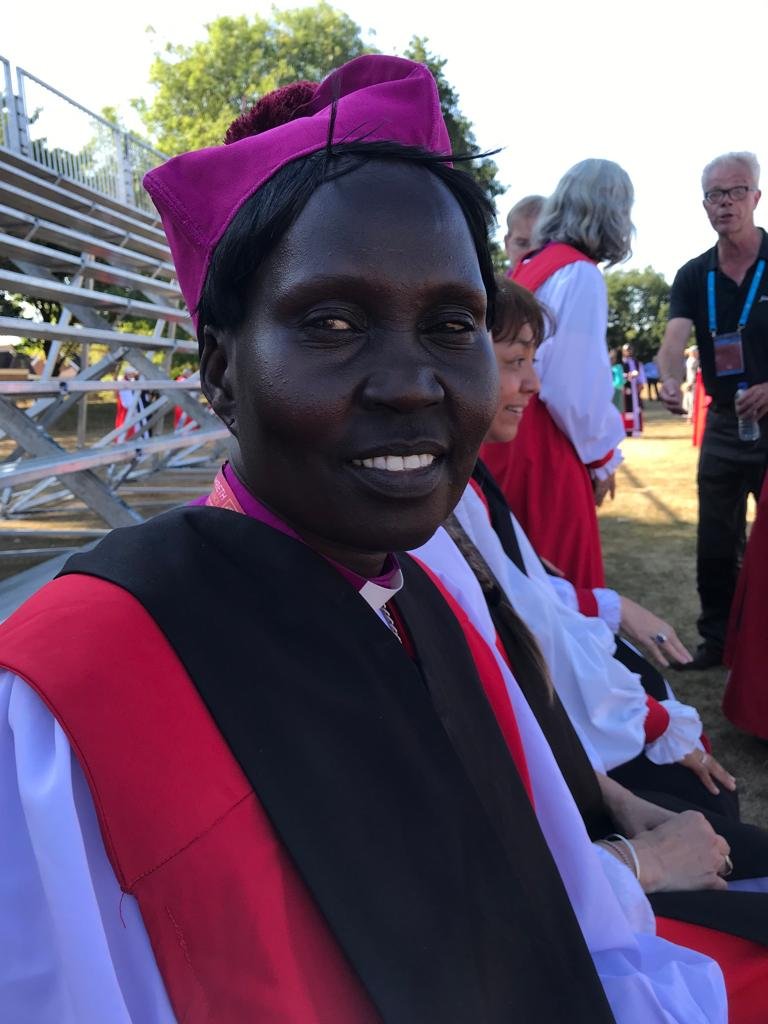
Anglicanism has always expressed its moral and social theologies through a pastoral lens, displaying a pastoral heart. I sometimes say that it is part of the distinctiveness of Anglican life that we step into new realities which really matter in people’s lives, and only later do we bother to institutionalise them.
And you could witness this in Canterbury as bishops moved amongst each other. We listened to each other’s realities with very great respect. In my bible study group there were bishops from Ghana, India, South Sudan, Australia and the USA as well as a facilitating bishop from the Church of England. Studying Scripture together and considering what we wished to affirm and declare brought us up against hugely different contextual challenges, and so different opinions about where Jesus might be found. It was a moving and transforming experience, and alone would have made the two weeks worthwhile.
We have been pastors to one another as we listened to the burdens of episcopal office and recognised the cost of another’s calling
Similarly, we made new friendships with bishops whose diocesan challenges were hard to imagine. A bishop whose entire diocese was under water because of climate change and the hostile behaviour of a neighbouring state. A bishop who came with a facial wound because he and his family had recently been shot at. Those who bore the scars of civil war, or persecution by the State, or pursued by those with aggressive agendas. We have been pastors to one another as we listened to the burdens of episcopal office and recognised the cost of another’s calling. As we acknowledged the global range of Anglicanism and the work still ahead to become a safe Church in a post-colonial era.
And the very nature of ‘communion’ was at the heart of our meeting and the choices made. Those bishops who associated themselves with the Global Anglican Future Conference (GAFCON) had been asked not to receive holy communion with the rest of us as a way of protesting that some of us (all Welsh bishops included) are ‘violating God’s Word in an unrepentant way’. There was a great sadness at the opening service when we did not receive communion together but Archbishop Justin Welby, as celebrant, invited us all to participate to the maximum extent possible. He subsequently issued a letter which you can read here: https://www.lambethconference.org/wp-content/uploads/2022/08/Archbishops-letter-to-Anglican-Bishops-2-August-2022.pdf
The Archbishop’s request is that we should accept our plurality of views on the topic of sexuality and it was in that spirit that we received and discussed the Lambeth Call’ on Human Dignity which you might like to consider: https://www.lambethconference.org/wp-content/uploads/2022/08/LC_Human-Dignity_ENG.pdf
That Declaration ends with these words: “Therefore, the church catholic declares that life is sacred and all persons are worthy of respect and worthy of conditions that make for life in all its fullness. From such holy standards there can be no faithful dissent.”
Provinces will continue to seek life in all its fullness within their own context and to testify to God’s grace as they receive it. Partnership links and friendships will endure, such as our own new link with the Diocese of Pennsylvania. We will, I pray, seek humility and hospitality in all our Anglican dealings with one another across the globe. For the blessings of the kingdom of heaven are for the sake of the world, so we do indeed exist as ‘God’s Church for God’s world’.
Further reading from Church in Wales
